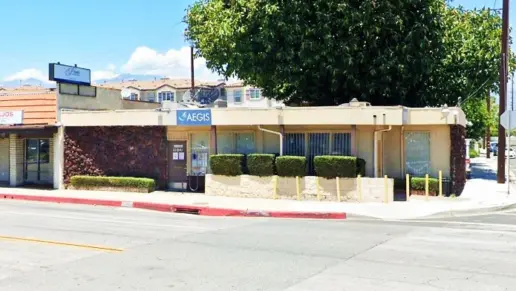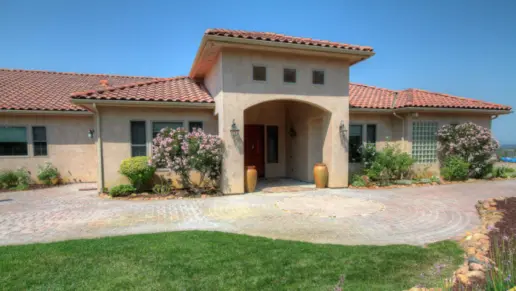About Balance Treatment Center
Balance Treatment Center is in Calabasas, California. They offer an extensive personalized approach for anyone who needs help with both mental health issues and co-morbid substance abuse through its dual diagnosis program. The center focuses on comprehensive co-occurring disorder treatment that is both holistic and integrative, meaning it gets to the root of addiction doing more than just treating symptoms. This integrated strategy is designed to promote recovery and acknowledges that mental health and substance use are strongly interrelated.
Balance Treatment Center also offers an array of ancillary mental health services beyond dual diagnosis, including partial hospitalization programs (PHP) and intensive outpatient programs (IOP) for both adults and adolescents at different stages in their lives. Clients also participate in skills-building, individual and group therapy services, as well as family involvement to enhance resiliency and coping capabilities.
The treatment center is creating a comprehensive plan specific to you, giving patients the option of diverse and personalized options based on different levels of service including both inpatient rehab or outpatient programs.
The facility offers many insurance plans to make treatment more accessible. However, details vary so calling the center is helpful for understanding if they are likely to accept your specific plan.
They also emphasize family education and support to help loved ones learn how to be part of the solution instead of adding more problems. And that holistic mindset allows clients to process every facet of their life so they are provided with long-term relief and support in the recovery journey.
Rehab Score
Gallery
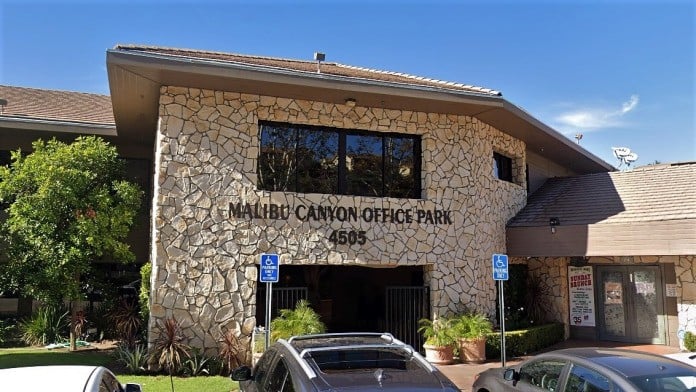
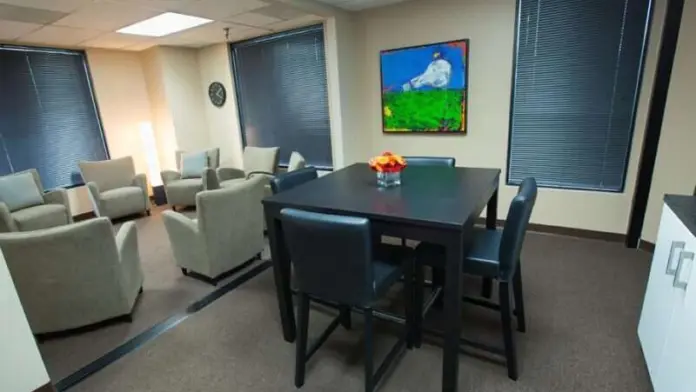
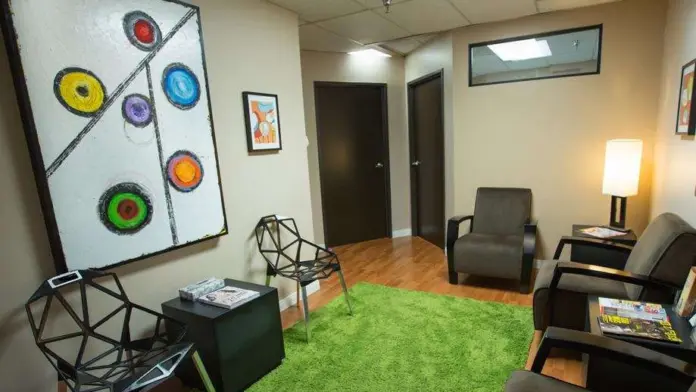
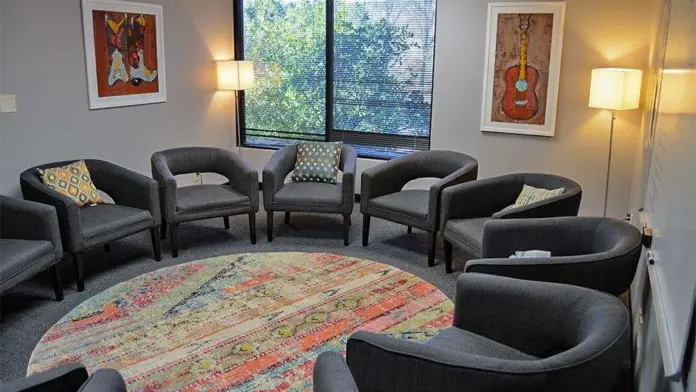
Location
Accepted Insurance
Other Forms of Payment
Private insurance refers to any kind of healthcare coverage that isn't from the state or federal government. This includes individual and family plans offered by an employer or purchased from the Insurance Marketplace. Every plan will have different requirements and out of pocket costs so be sure to get the full details before you start treatment.
Self-pay involves paying for treatment out of your own pocket. You can use savings or credit, get a personal loan, or receive help from family and friends to fund your treatment. If you don't have insurance or your insurance plan doesn't cover a specific program, self-pay can help ensure you still get the care you need.
Military members, veterans, and eligible dependents have access to specific insurance programs that help them get the care they need. TRICARE and VA insurance can help you access low cost or no cost addiction and mental health treatment. Programs that accept military insurance often have targeted treatment focused on the unique challenges military members, veterans, and their families face.
Addiction Treatments
Levels of Care
Treatments
The goal of treatment for alcoholism is abstinence. Those with poor social support, poor motivation, or psychiatric disorders tend to relapse within a few years of treatment. For these people, success is measured by longer periods of abstinence, reduced use of alcohol, better health, and improved social functioning. Recovery and Maintenance are usually based on 12 step programs and AA meetings.
Drug rehab in California teaches participants constructive ways to stay clean and sober. Treatment revolves around helping individuals stop using the substance they are addicted to and learn healthy habits to avoid relapse.
Many of those suffering from addiction also suffer from mental or emotional illnesses like schizophrenia, bipolar disorder, depression, or anxiety disorders. Rehab and other substance abuse facilities treating those with a dual diagnosis or co-occurring disorder administer psychiatric treatment to address the person's mental health issue in addition to drug and alcohol rehabilitation.
A combined mental health and substance abuse rehab has the staff and resources available to handle individuals with both mental health and substance abuse issues. It can be challenging to determine where a specific symptom stems from (a mental health issue or an issue related to substance abuse), so mental health and substance abuse professionals are helpful in detangling symptoms and keeping treatment on track.
Opioid rehabs specialize in supporting those recovering from opioid addiction. They treat those suffering from addiction to illegal opioids like heroin, as well as prescription drugs like oxycodone. These centers typically combine both physical as well as mental and emotional support to help stop addiction. Physical support often includes medical detox and subsequent medical support (including medication), and mental support includes in-depth therapy to address the underlying causes of addiction.
Programs



Clinical Services
Animal therapy (aka pet therapy or animal-assisted therapy) can be very healing, as it allows patients to bond with animals, who give unconditional love. This is particularly useful for those who suffered trauma by the hands of people, who may be able to trust and form closer attachments to animals than humans at certain stages of rehabilitation.
Cognitive Behavioral Therapy (CBT) is a therapy modality that focuses on the relationship between one's thoughts, feelings, and behaviors. It is used to establish and allow for healthy responses to thoughts and feelings (instead of unhealthy responses, like using drugs or alcohol). CBT has been proven effective for recovering addicts of all kinds, and is used to strengthen a patient's own self-awareness and ability to self-regulate. CBT allows individuals to monitor their own emotional state, become more adept at communicating with others, and manage stress without needing to engage in substance abuse.
Whether a marriage or other committed relationship, an intimate partnership is one of the most important aspects of a person's life. Drug and alcohol addiction affects both members of a couple in deep and meaningful ways, as does rehab and recovery. Couples therapy and other couples-focused treatment programs are significant parts of exploring triggers of addiction, as well as learning how to build healthy patterns to support ongoing sobriety.
Creativity is inherently healing, and can help those in recovery express thoughts or feelings they might not otherwise be able to. Creative arts therapy can include music, poetry/writing, painting, sculpting, dance, theater, sandplay, and more. Unlike traditional art, the final product matters far less than the experience of creation and expression itself.
Dialectical Behavior Therapy (DBT) is a modified form of Cognitive Behavioral Therapy (CBT), a treatment designed to help people understand and ultimately affect the relationship between their thoughts, feelings, and behaviors. DBT is often used for individuals who struggle with self-harm behaviors, such as self-mutilation (cutting) and suicidal thoughts, urges, or attempts. It has been proven clinically effective for those who struggle with out-of-control emotions and mental health illnesses like Borderline Personality Disorder.
Horse-assisted therapy is extremely effective in treating a variety of psychological issues. There are both physiological and psychological benefits gained from interacting with horses. These include lowered heart rate and blood pressure, decreased stress, reduced feelings of anger, tension and anxiety, improved social functioning, and increased feelings of empowerment, trust, patience, and self-esteem.
EMDR is often used for PTSD but has also been shown to be effective for panic disorder, addictions, and specific phobias. Clients bring to mind an emotionally unpleasant belief about themselves as related to a difficult event. With these images in mind, clients are asked to pay attention to an outside stimulus, such as eye movement. Faced with the difficult event, the brain is often overwhelmed, making it difficult to process information normally. The event may be repressed, and the act of remembering it can trigger the “fight or flight” response. EMDR works by building new connections between these difficult events and positive beliefs within other areas of the memory.
Research clearly demonstrates that recovery is far more successful and sustainable when loved ones like family members participate in rehab and substance abuse treatment. Genetic factors may be at play when it comes to drug and alcohol addiction, as well as mental health issues. Family dynamics often play a critical role in addiction triggers, and if properly educated, family members can be a strong source of support when it comes to rehabilitation. Multi-Family Groups are designed to develop an alliance between the client, family, providers and others in the support network. Their team works to help inform family members about mental illness, develop communication skills and problem solve. The goal is to provide understanding and support the so client may live the most fulfilling life possible.
Group therapy is any therapeutic work that happens in a group (not one-on-one). There are a number of different group therapy modalities, including support groups, experiential therapy, psycho-education, and more. Group therapy involves treatment as well as processing interaction between group members.
In individual therapy, a patient meets one-on-one with a trained psychologist or counselor. Therapy is a pivotal part of effective substance abuse treatment, as it often covers root causes of addiction, including challenges faced by the patient in their social, family, and work/school life. Each client will be assigned an individual therapist. In Balance Treatment Center - Las Virgenes Road's Residential Program, clients will see their therapist on a daily basis. In their Intensive Outpatient Program, individual therapy is offered on an as-needed basis. In individual therapy, clients are able to explore what may be contributing to their symptoms and gain insight into underlying issues.
Life skills trainings involve all the skills a person must have in order to function successfully in the world. These include time management, career guidance, money management, and effective communication. Truly successful addiction recovery is based on the ability to not only live substance-free, but to thrive. Life skills teaches the practical necessities of functioning in society, which sets clients up for success in life, and therefore sobriety.
Motivational Interviewing will help clients believe in their ability to change. It helps clients take personal responsibility for initiating and sustaining healthy behavior. Motivational Interviewing normally includes problem-solving and solution-focused strategies that build on clients’ past success. The therapist will listen empathically and interview with purpose, to encourage the client to find discrepancies between reaching their life goals and the consequences of continuing to go on as they have without making changes.
Nicotine Replacement Therapy (NRT) is a way of getting nicotine into the bloodstream without smoking. It uses products that supply low doses of nicotine to help people stop smoking. The goal of therapy is to cut down on cravings for nicotine and ease the symptoms of nicotine withdrawal.
Nutrition therapy, aka medical nutrition therapy (MNT), is a way of treating physical, emotional, and medical conditions through diet. Specific dietary plans are designed by professional nutritionists or registered dietitians, and patients follow them in order to positively affect their physical and mental health. Balance Treatment Center - Las Virgenes Road believes in a farm-to-table approach to food preparation at Balance. Foods are sourced locally and used seasonally. This philosophy in cooking offers their clients the freshest and healthiest fare available. Foods are prepared just days from harvest and are at their peak of flavor and nutritional value. Organic dairy products, sustainable meats and seafood, non-GMO and natural products are used to prepare meals. Their approach is a fusion of healthy California cuisine combined with the comforts of home, traditional home-style cooking made lighter and healthier.
Recreational therapy (aka therapeutic recreation) uses creative and fun activities to help with addiction recovery. Recreational therapists lead patients in entertaining and engaging activities like sports or games; art (drawing, painting, sculpture); drama, music, and dance; and/or community outings (field trips) to improve patients' physical, social, and emotional well-being.
Trauma therapy addresses traumatic incidents from a client's past that are likely affecting their present-day experience. Trauma is often one of the primary triggers and potential causes of addiction, and can stem from child sexual abuse, domestic violence, having a parent with a mental illness, losing one or both parents at a young age, teenage or adult sexual assault, or any number of other factors. The purpose of trauma therapy is to allow a patient to process trauma and move through and past it, with the help of trained and compassionate mental health professionals.
Amenities
-
Residential Setting
-
Private Setting
-
Yoga Studio
-
Private Transportation
Accreditations

The Joint Commission, formerly known as JCAHO, is a nonprofit organization that accredits rehab organizations and programs. Founded in 1951, the Joint Commision's mission is to improve the quality of patient care and demonstrating the quality of patient care.
Joint Commission Accreditation: Yes
Accreditation Number: 549008

The Substance Abuse and Mental Health Services Administration (SAMHSA) is a branch of the U.S. Department of Health and Human Services. Established in 1992 by congress, SAMHSA's mission is to reduce the impact of substance abuse and mental illness on American's communities.
SAMHSA Listed: Yes

State Licenses are permits issued by government agencies that allow rehab organizations to conduct business legally within a certain geographical area. Typically, the kind of program a rehab facility offers, along with its physical location, determines which licenses are required to operate legally.
State License: California
License Number: 190826AP
Contact Information
4505 Las Virgenes Road
Suite 202
Calabasas CA, 91302





